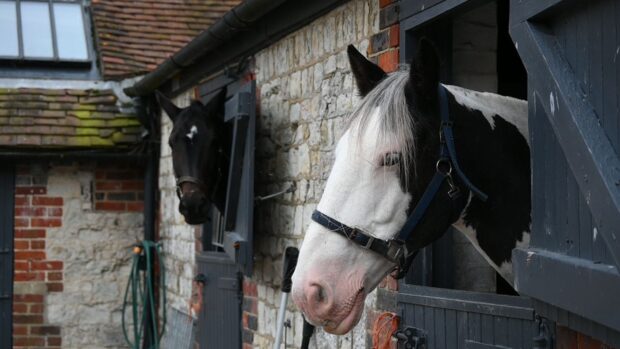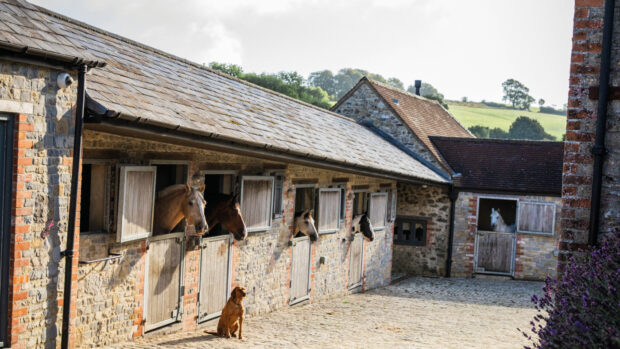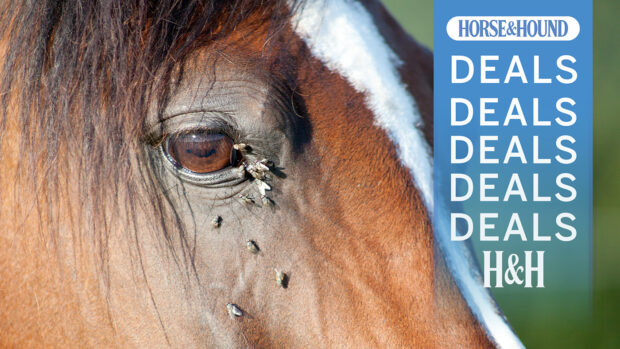Considering the position and prominence of a horse’s eyes, it’s amazing that they are not more frequently injured. They are, however, delicate and irraplaceable, so any problem should not be dismissed lightly, even if it is apparently minor.
Conjunctivitis and melting ulcers
At this time of year, the eye is a magnet for flies, and may also be irritated by pollen and other allergens, which can cause conjunctivitis — inflammation of the conjunctival membrane around the eyeball.
Typically, the eye waters and there may be a watery discharge that progresses to a trickle of pus, with a tendency to close the eye. Discuss even the mildest symptoms with your vet. Although uncommon, these can also be the early symptoms of a “melting” ulcer, which is extremely serious.
Treatment for conjunctivitis
Don’t use any old tube of eye ointment. Some contain steroids, which can cause great harm if there is an ulcer present as they will slow or stop healing. There are many purpose-designed eyewashes available. Choose a good, sterile saline solution such as Optrex and discard it after opening according to the manufacturer’s instructions. Old, opened bottles may be contaminated and not safe to reuse.
Always feed horses with any eye condition away from the floor to prevent hay seeds and dust from further irritating the problem.
Protect the eye from bright sunlight and use a good quality fly mask to reduce the risk of irritation to the eye in the first place.
If the condition does not improve within three days, consult the vet again.
Injury to the eye
Never pull out a foreign body protruding from the eye. It may well be a vital piece of the eyeball and could cause irreversible damage.
Contact the vet urgently and advise them that the eye has been injured, so that they can bring the relevant equipment.
Any tear or injury to the eye or eyelids needs proper surgical repair using the most delicate of instruments and failure to do so could lead to further problems. It is often necessary to repair such injuries under a general anaesthetic, as it is natural for the horse to flinch when treated in this area and it is obviously important that it does not move at the wrong moment.



